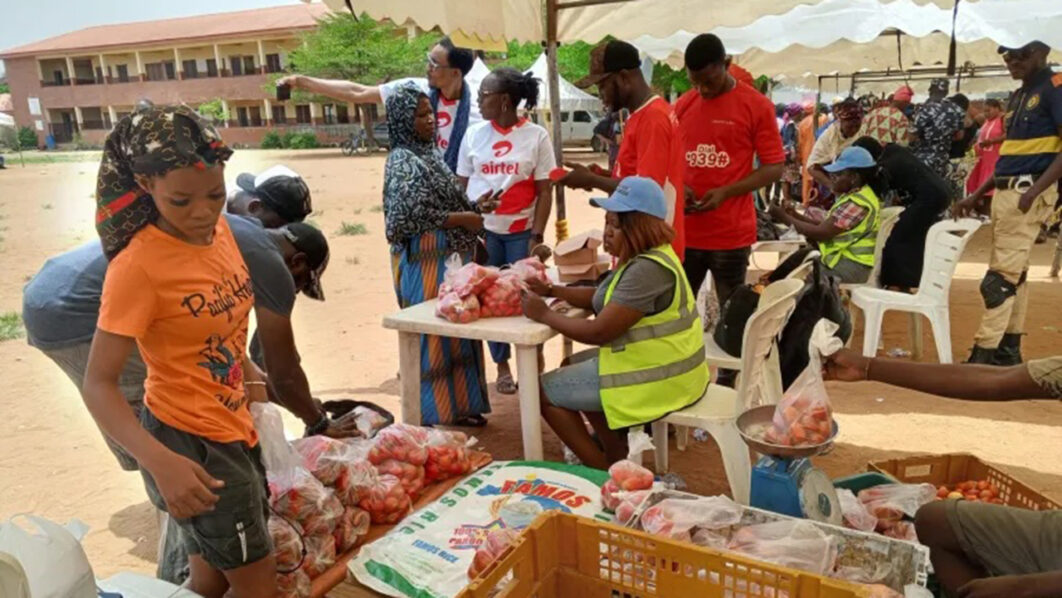
As phase II commences Sunday
With the implementation of Ounje Eko Food Discount Market Phase II set to begin on Sunday, Governor Babajide Sanwo-Olu has said the state has engaged 6,000 personnel and over 3,000 businesses to supply food items, transportation, logistics and other necessities to bolster the local economy.
The discount market is an initiative of the Lagos State government to cushion the impact of rising food prices on citizens, especially with food inflation reaching 40.9 per cent, placing the price of staple food items beyond the reach of many households, and its attendant social implications,
Earlier this year, the state government implemented phase 1of the project across the 57 councils and local council development areas (LCDAs), including Alausa, Secretariat and Lekki Phase I. The temporary markets operated on Sundays to provide selected food items at a 25 per cent. The initiative, held over six editions, reached over 250,000 beneficiaries across the state.
While announcing commencement of the second phase at a media briefing, the Commissioner for Agriculture and Food Systems, Ms. Abisola Olusanya, said the new phase, which commences on September 1, 2024, will run for eight weeks across 64 locations, including the 57 LGAs/LCDAs, Alausa Secretariat, Lekki Phase 1, University of Lagos (UNILAG), Lagos State University (LASU), Lagos State University of Science and Technology (LASUSTECH), Lagos State University of Education (LASUED), and Lagos State University Teaching Hospital (LASUTH).
She said: “The markets will operate from 10:00am to 5:00pm. Markets at the Alausa Secretariat and the institutions, such as UNILAG, LASU, LASUSTECH, LASUED, and LASUTH, will hold on Fridays, while the market for Mushin LGA, to be held at the Fresh Food Hub in Idi-Oro, will operate on Wednesdays and Saturdays.
“The food items available at the markets will include a maximum cap purchasable of 5kg each for rice, beans, and garri, two loaves of bread, one crate of egg, 2kg of tomatoes and 1kg each for pepper, Bell pepper (tatashe) and onion per individual. It is important to note that the prices of these food items have increased over the past few months, varying from one location to another.
“For instance, a 50kg bag of local rice (short grain) sells for N75, 000 in Ikeja and Lagos Island, N68, 000 in Badagry, and N70, 000 in Ikorodu. Therefore, to accommodate these disparities, the prices of food items sold at each market location will align with the prevailing local market prices, as the items will be sold by local vendors.”
Olusanya said the ministry has made provisions to ensure a comfortable and hassle-free experience at all market locations, adding that adequate seating, canopies, and convenience facilities will be available. “For any issues or complaints, citizens should approach the market leader, who will be wearing a branded red reflective jacket or other staff officials in branded lemon reflective jackets.
“We are confident that this initiative will continue to make a positive impact on the lives of Lagosians, and we encourage everyone to participate diligently and actively.”






